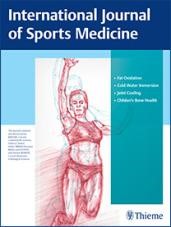Vestibular and oculomotor testing is emerging as a valuable assessment in sport-related concussion (SRC). However, their usefulness for tracking recovery and guiding return-to-play decisions remains unclear. Therefore, the purpose of this study was to evaluate their clinical usefulness for tracking SRC recovery. Vestibular and oculomotor assessments were used to measure symptom provocation in an acute group (n=21) concussed≤10 days, prolonged symptoms group (n=10) concussed ≥16 days (median=84 days), healthy group (n=58) no concussions in >6 months. Known-groups approach was used with three groups at three time points (initial, 2-week and 6-week follow-up). Provoked symptoms for Gaze-Stabilization (GST), Rapid Eye Horizontal (REH), Optokinetic Stimulation (OKS), Smooth-Pursuit Slow (SPS) and Fast (SPF) tests, total combined symptoms scores and near point convergence (NPC) distance were significantly greater at initial assessment in both injury groups compared to controls. Injury groups improved on the King-Devick test and combined symptom provocation scores across time. The acute group improved over time on REH and SPF tests, while the prolonged symptoms group improved on OKS. A regression model (REH, OKS, GST) was 90% accurate discriminating concussed from healthy. Vestibular and ocular motor tests give valuable insight during recovery. They can prove beneficial in concussion evaluation given the modest equipment, training and time requirements. The current study demonstrates that when combined, vestibular and oculomotor clinical tests aid in the detection of deficits following a SRC. Additionally, tests such as NPC, GST, REH, SPS, SPF OKS and KD provide valuable information to clinicians throughout the recovery process and may aid in return to play decisions.
Summary Points:
- Three groups were compared and tested initially, and at a 2-week and 6-week follow-up which included: healthy subjects (n=58), subjects with an acute sports-related concussion (n=21), and another group with prolonged symptoms (n=10).
- Poor performance on the K-D test may be a sign of diminished saccadic movement speed and/or cognitive and language processing.
- K-D total time improved across time relative to the initial assessment at both 2 weeks (p=0.04) and 6 weeks (p=0.002) for the prolonged recovery group. The acute group did not significantly improve until the 6-week time point (p=0.001).
- These findings suggest that a brief ocular-motor screen including K-D test can aid in the diagnostic process when evaluating for a suspected concussion. Moreover, repeating the same screening at regular intervals following an initial diagnosis of a concussion may aid in return to play protocol and track the healing process.

